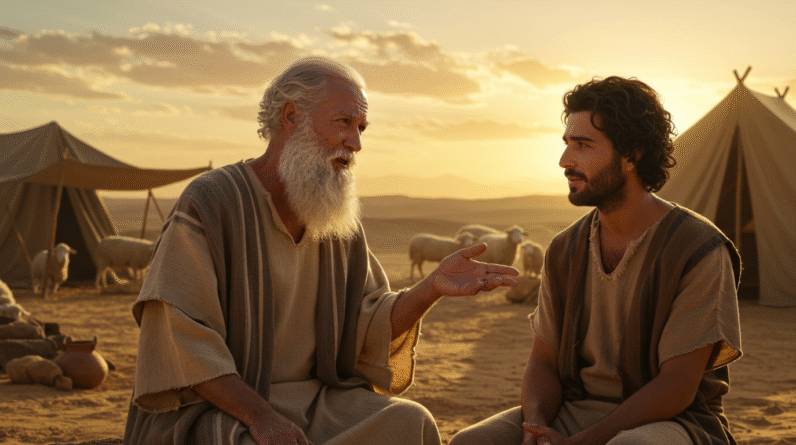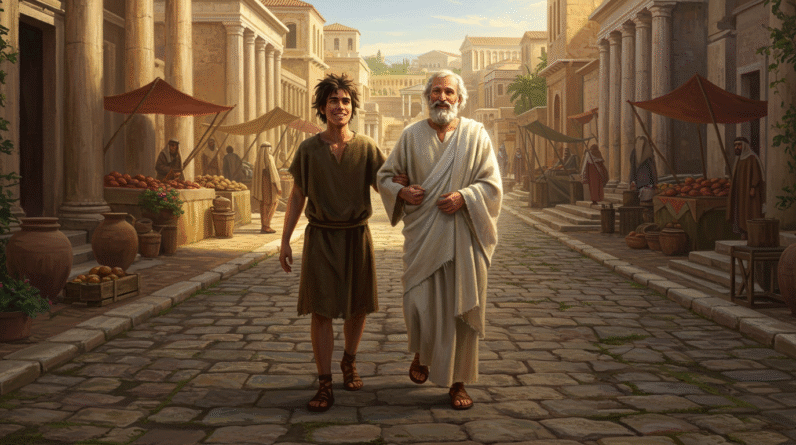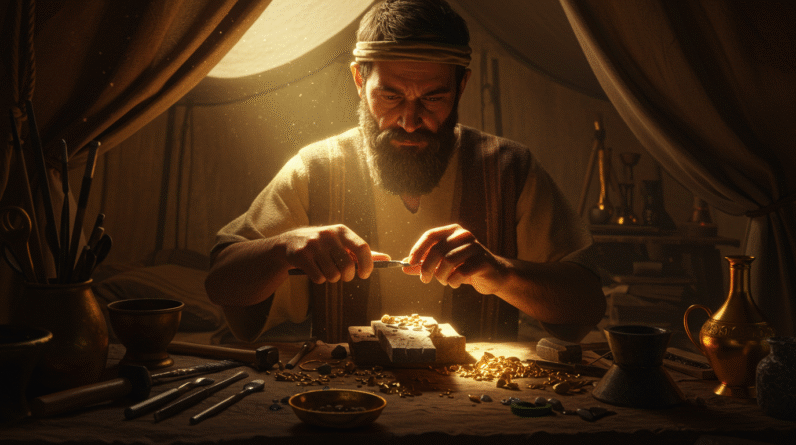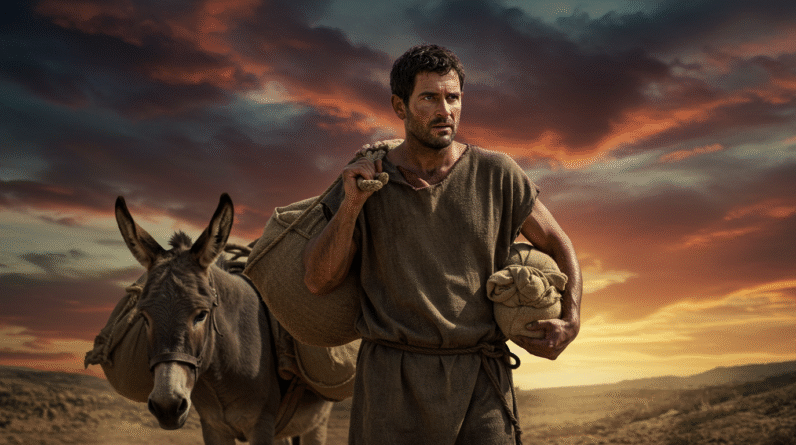Explore Jether’s role in Gideon’s story—a tale of youthful hesitation, courage, and expectation. Discover how his brief biblical presence offers timeless lessons.
The Role of Jether in the Story of Gideon
In the vast narrative tapestry of the Bible, there exists a myriad of characters whose roles, though sometimes peripheral, offer profound insights into human nature, divine intervention, and the intricate dance of fate. One such lesser-known figure is Jether, an integral thread in the saga of Gideon. While Gideon takes the central stage in this story of heroism and divine triumph, Jether’s momentary presence reverberates with lessons that are as relevant today as they were millennia ago.
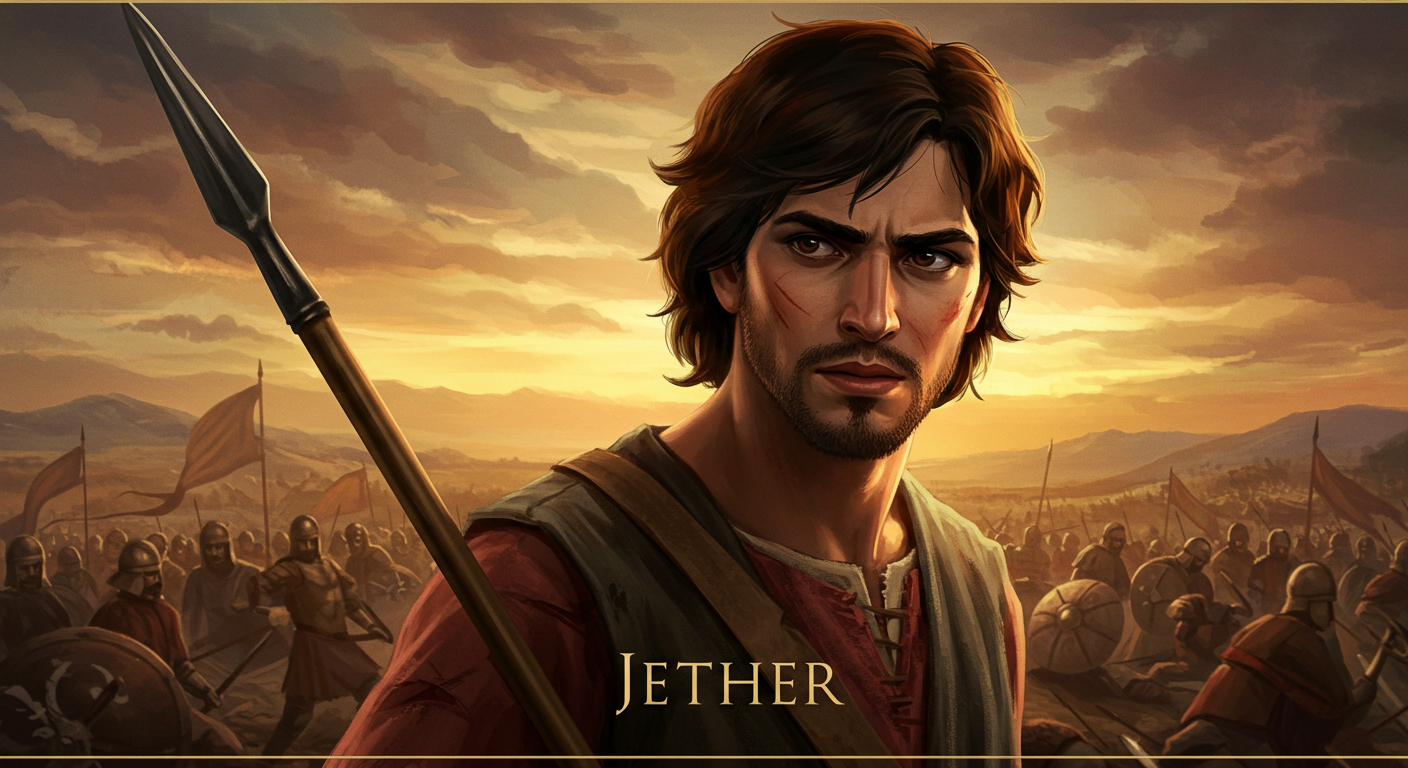
Introduction
Jether may not be a household name among biblical figures, yet his brief appearance within the sacred texts is pregnant with meaning. As the eldest son of Gideon, also known as Jerubbaal, Jether’s role, though succinct, is a meditation on the themes of courage, duty, and the daunting grip of youth’s hesitations (Judges 8:20). The interplay between father and son in the aftermath of victorious battles against overwhelming odds serves as a delicate blend of mentorship, expectation, and personal agency. This scenario paints the timeless picture of the younger generation’s struggle under the shadow of a monumental legacy.
Their Story in the Bible
Gideon, an iconic judge of Israel, is renowned for leading a small army of just 300 men to defeat the Midianites, a formidable foe plaguing the Israelites. Yet, it is in the aftermath of this divine victory that Jether’s narrative unfolds. As Gideon pursued the fleeing Midianite kings Zebah and Zalmunna, the saga entered a critical phase. In a poignant moment reflecting the raw bridge between instruction and action, Gideon called upon Jether to slay the captured Midianite kings (Judges 8:20). The request, however, was met with trepidation; Jether, described as just a boy, lacked the courage to take up the sword.
This scene is both dramatic and humanizing, highlighting the delicate transition from youth to adulthood and the weight of expectation every parent places upon their child. It provides a snapshot of Jether’s internal struggle, accentuating how fear can immobilize even when opportunities for valor present themselves. The subsequent action, where Gideon himself deals with the Midianite kings, further encapsulates both parental protection and the harsh reclamation of duty.
Lessons from Their Life
The story of Jether is a reflective mirror illustrating various life lessons. Firstly, it embodies the concept of courage and how it often falters amidst daunting expectations. Jether’s hesitance, entirely natural for a child, teaches us that true bravery does not always mean the absence of fear, but rather the overcoming of it. For us, the readers, this can inspire compassion and understanding, particularly towards the younger generations, who may struggle with the pressures thrust upon them.
Secondly, Jether signifies the transitional phase of responsibility, where youth is met with the burdens of adulthood. This serves as a reminder for all—to be patient with others as they navigate their path, for not everyone can immediately rise to the challenges set before them. Moreover, it underscores the importance of mentoring and support, particularly from those who have already walked the path.
Finally, the narrative spotlights the role of leadership and how sometimes, a leader must step back into the spotlight, guiding and correcting in the absence of readiness from those who are to follow. Gideon’s decision to take back the sword was not just an act of completion, but also an example of parental guidance and the protection of innocence.
Connection to Today’s World
The dynamics between Jether and Gideon echo through modern society, where familial and societal expectations often collide with personal readiness and confidence. In today’s fast-paced world, where success and achievement are heavily lauded, Jether’s story reminds us of the importance of timing and preparation. It raises relevant questions about the pressures we place on the young, urging us to consider whether our demands nurture growth or stifle potential.
Moreover, in professional and personal arenas alike, the theme of stepping up to responsibilities recurs. Jether teaches us the necessity of grace, offering it to ourselves when we fall short and extending it to others who might find themselves hesitant before the precipice of great expectation. This is particularly pertinent in leadership roles, where understanding and adjusting expectations can forge stronger, more confident successors.
Key Bible Verse
“Turning to Jether, his oldest son, he said, ‘Kill them!’ But Jether did not draw his sword, because he was only a boy and was afraid.” (Judges 8:20)
This verse poignantly encapsulates the essence of Jether’s part in the biblical narrative. It reveals both the high expectations placed upon him and the natural reluctance stemming from his youth. The verse is a reminder of the importance of understanding and empathy during key developmental moments, aligning with broader themes of growth, responsibility, and courage.
Thought-Provoking Question
In reflecting on Jether’s story, consider How we balance the expectation of bravery and readiness in ourselves and others while acknowledging the rightful space for growth and development.
Historical/Cultural Context
The story occurs during a tumultuous period in Israel’s history, characterized by cyclical oppression and deliverance as seen in the Book of Judges. Medieval practices of victory celebration included the execution of captured enemy leaders, thus contextualizing Gideon’s request to Jether. This period underscores the societal expectations placed on young men to swiftly embrace roles of leadership and warfare—a societal norm that adds depth to Jether’s apprehension and perceived failure.
Comparison with Other Characters
Jether’s experience can be paralleled with that of Isaac during Abraham’s test of faith. Although Isaac’s much-debated age remains disputed, his silent submission on Mount Moriah denotes a different approach to expectations and fear (Genesis 22:9). The comparison enhances understanding of varied responses to pressure within the biblical narrative framework.
Prayer
Reflective prayer inspired by Jether:
“Lord, grant us wisdom and patience as we guide others through life’s transitions. Help us to balance our expectations with empathy, just as you nurture us through our fears and uncertainties. May we always seek your guidance in moments of hesitation, drawing courage from your steadfast presence. Amen.”


